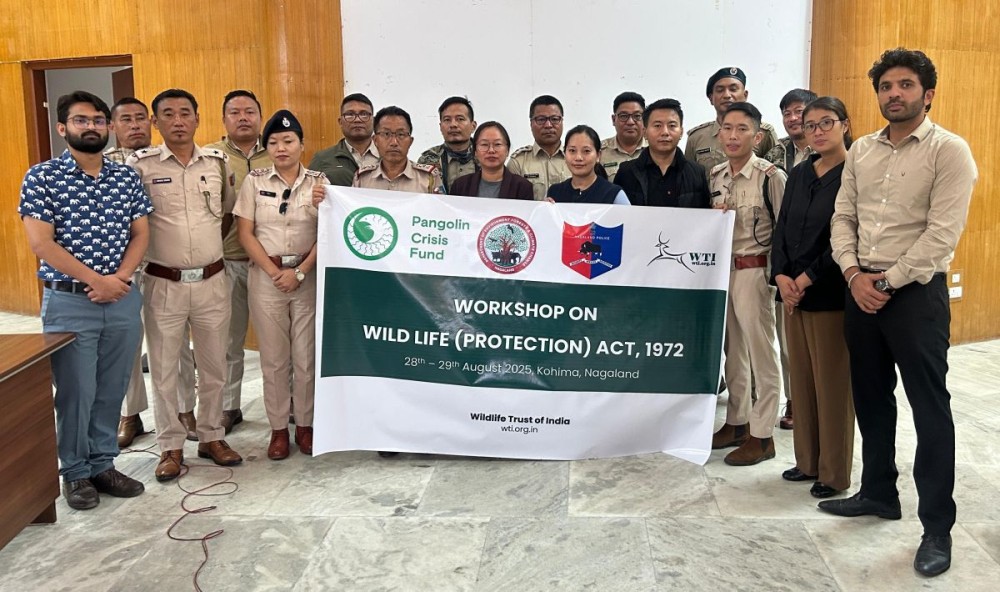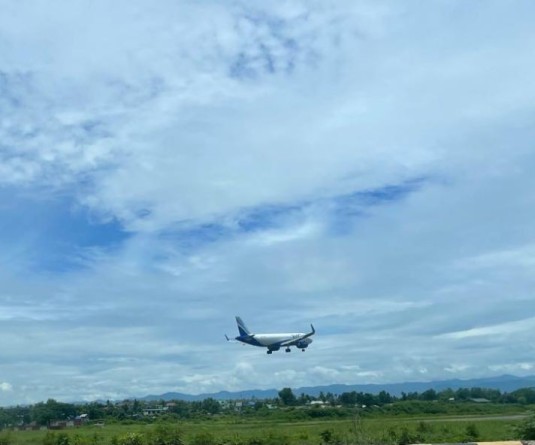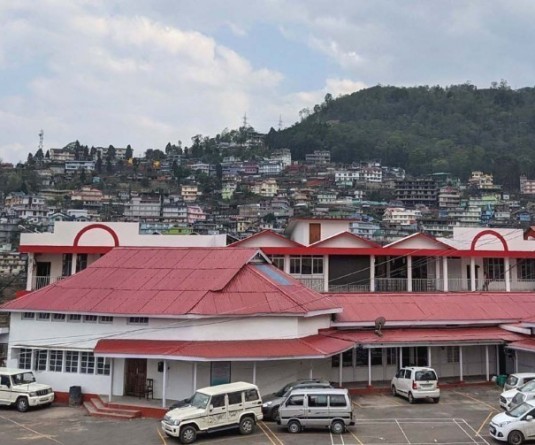The Wildlife Trust of India (WTI), in collaboration with the Kohima Forest Division and Kohima Police with support from the Pangolin Crisis Fund (PCF), conducted a two-day capacity-building workshop on the Wild Life (Protection) Act, 1972 for forest and police personnel in Kohima.

KOHIMA, AUGUST 29 (MExN): The Wildlife Trust of India (WTI), in collaboration with the Kohima Forest Division and Kohima Police with support from the Pangolin Crisis Fund (PCF), conducted a two-day capacity-building workshop on the Wild Life (Protection) Act, 1972 for forest and police personnel in Kohima.
Altogether 23 officers, including assistant sub-inspectors, sub-inspectors, foresters and forest range officers, participated in the training aimed at strengthening inter-departmental coordination and enhancing the capacity of frontline officials to tackle illegal wildlife trade in Nagaland.
The sessions covered an overview of wildlife crime in India, the latest amendments to the Wild Life (Protection) Act, techniques for identification of wildlife articles and contraband, and best practices for investigation and prosecution of offences. Special emphasis was placed on pangolin conservation, as the species is among the most trafficked mammals globally and requires urgent protection measures in Nagaland.
The workshop was inaugurated by Sevono Seletsu, Divisional Forest Officer, Kohima Forest Division, who underscored the need for collaboration between forest and police departments in combating wildlife crime.
The training was conducted by Lovish Sharma, advocate at the Delhi High Court, and Monesh Singh Tomar, assistant manager at WTI, with support from Chingrisoror Rumthao, field officer at WTI.
Participants described the workshop as timely and practical, noting that it provided valuable insights to strengthen wildlife law enforcement in the state. Concluding the programme, Tomar said Nagaland plays a critical role in curbing illegal wildlife trade, particularly pangolin trafficking, and that building the capacity of enforcement officials is vital for effective implementation of the law.
The workshop marked a significant step towards strengthening enforcement mechanisms and promoting coordinated action against wildlife trafficking in the state.





